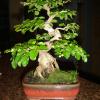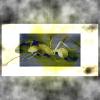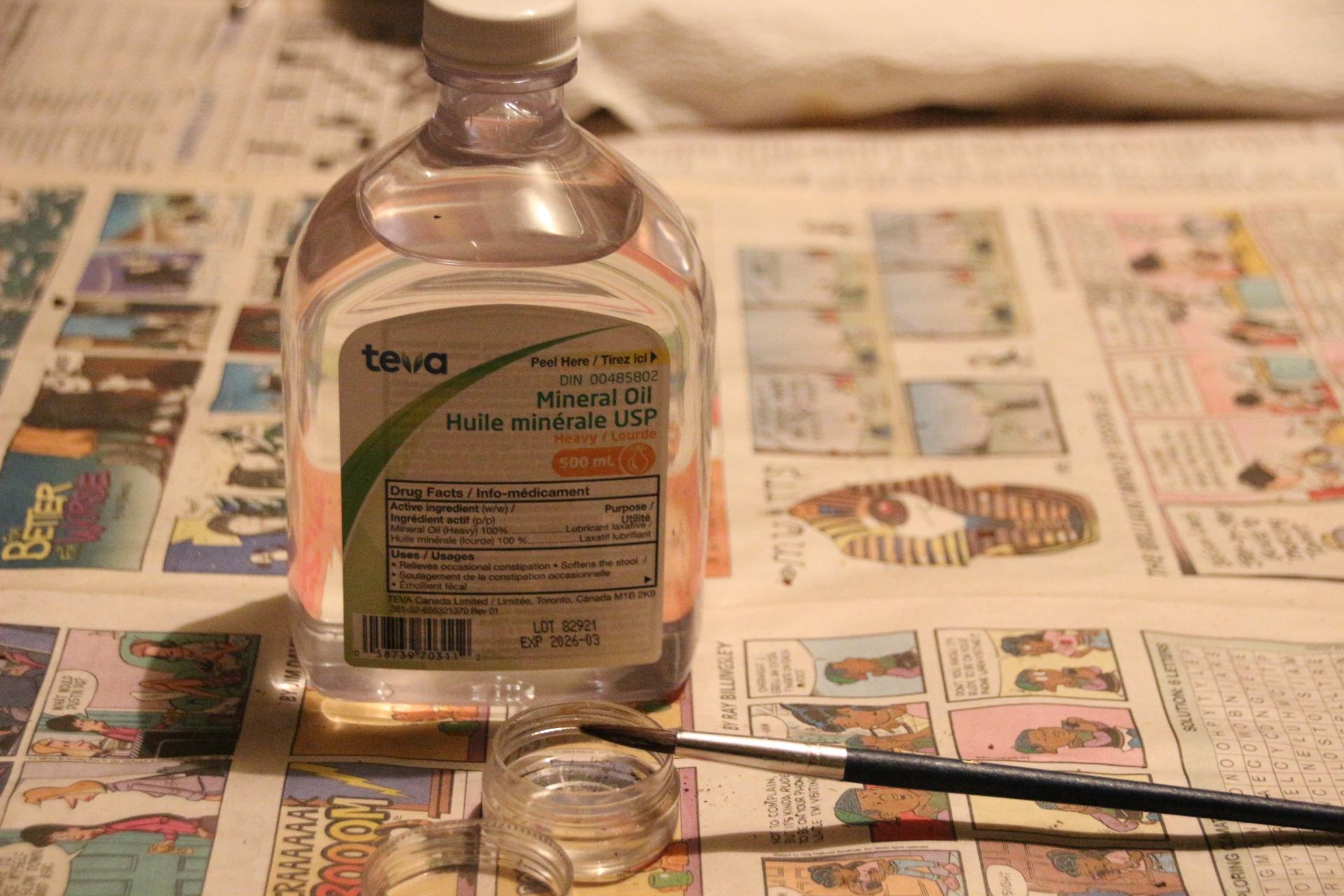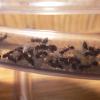Heavy Mineral Oil as a Barrier
I've often promoted the use of heavy mineral oil as a barrier for ants. I recently bought a new bottle at the pharmacy and noticed it has a slightly higher viscosity than the ancient bottle I'd used up. My usual method of application was with a small oil-soaked cotton ball and forceps. I was able to apply a thin coat that wouldn't run. The new oil leaves a much thicker coating with this method, and it does tend to run. Small ants can get trapped in it and die. This usually only happens to the most belligerent ants in the bunch that aren't smart enough to turn away from the oil but blunder on and get trapped, even when it is applied in a thin coat. The odd dead ant is no great loss to a large colony but could be dangerous for a small founding colony with an already small number of workers.
I now apply the oil with a paint brush, it's easier to wipe off excess oil before applying it and easier to clean dirt and dead ants off afterwards. I can also use my finger to spread it evenly. If they're repelled by it, a thin coat is all that's required. I now use it sparingly with founding colonies.
I've found heavy mineral oil to be an effective barrier for most of the ants I keep. Some, like Tetramorium will just keep testing and wearing it down over time, so its' effectiveness is short lived. Others, like Tapinoma avoid it like the plague, so I can keep some of those colonies in open top containers. Camponotus are heavy enough they have a hard time on anything slippery, so a light wipe is all that's required.
The only ants I have that seem to be able to walk through it with impunity are Lasius amiericanus while my founding L. neoniger and L. niger colonies seem to respect it.
Heavy mineral oil also makes a great base that I dab talcum powder onto. I've used this as a "last resort" escape prevention for a Camponotus colony with an open top outworld.
And if that isn't enough information already about heavy mineral oil, I was reminded of one of its' uses from my youth because I found it in the laxative section of the drug store!
RPT























